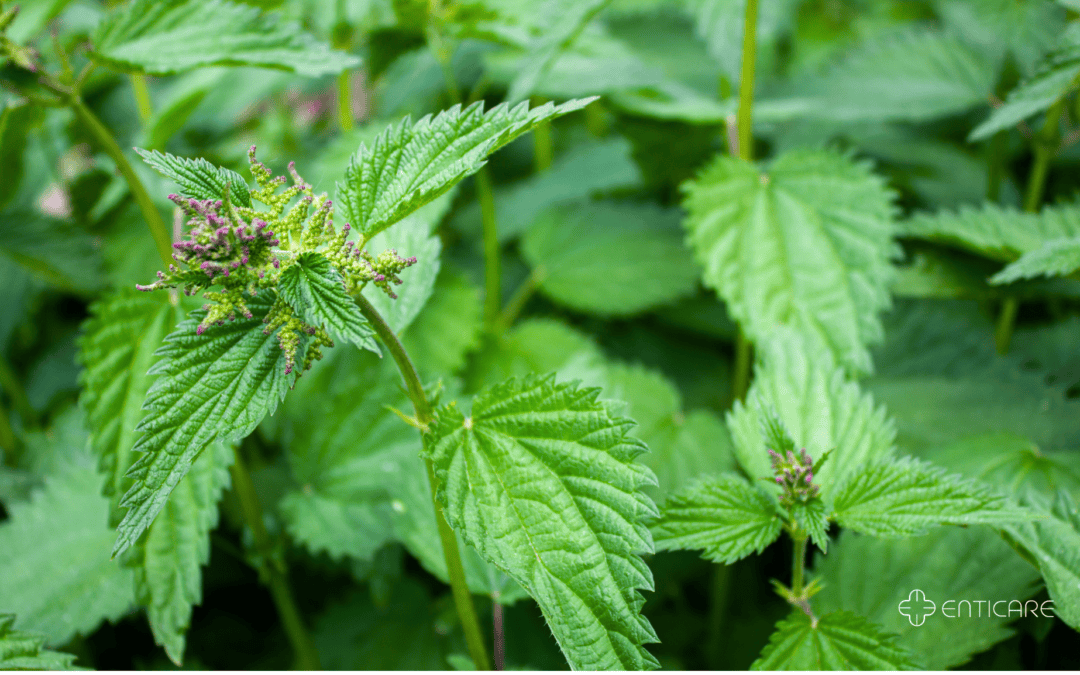Nettles are notorious for their painful sting, but did you know they can also trigger allergy symptoms? If you experience a wave of itchiness, sneezing, and eye irritation after brushing past a seemingly harmless plant, you might be surprised to learn the culprit is a nettle weed allergy.
Nettles, also known as stinging nettles or nettles leaf, are a diverse group of flowering plants found worldwide, including throughout North America. These leafy greens are famous for their tiny hairs that contain formic acid, causing a stinging sensation upon contact. However, for some people, nettles can trigger allergy symptoms even without physical touch.
Origin in North America
Nettles are native to North America, so you might encounter them on hikes, camping trips, or even in your own backyard. Being aware of their potential to trigger allergies can help you avoid unpleasant encounters.
Season
Nettle allergy symptoms can occur throughout the growing season, typically from spring to fall (March to October) This coincides with the period when nettles produce the most pollen.
Signs and Symptoms
If you have a nettle allergy, you might experience these symptoms after inhaling nettle pollen or even brushing against the plant (though the symptoms from contact would likely be dominated by the stinging sensation):
- Runny or stuffy nose
- Itchy, watery eyes
- Sneezing
- Coughing
- Scratchy throat
- Hives (in some cases)
- Difficulty breathing (in severe cases)
Causes
Similar to other allergies, nettle allergies arise from an overreaction by your immune system. When you inhale nettle pollen, your immune system mistakenly identifies it as a threat and releases chemicals that trigger allergy symptoms. Additionally, direct contact with the plant can trigger the release of histamine from skin cells, leading to the characteristic stinging sensation and potential for a localized allergic reaction.
Prevention
Here are some tips to minimize your exposure to nettle pollen and manage allergy symptoms:
- Learn to identify nettles: Familiarize yourself with the appearance of nettles in your area. They typically have heart-shaped leaves with serrated edges and visible stinging hairs on the underside.
- Wear protective clothing: When hiking or spending time in nature, wear long pants, sleeves, and gloves to avoid contact with nettles.
- Track pollen counts: If possible, check daily pollen forecasts and limit outdoor activities when nettle pollen counts are high.
- Stay indoors during peak pollen hours: Mornings and evenings are generally the worst times for nettle allergies.
- Keep windows closed: Especially during peak pollen times.
Risk Factors
While anyone can develop a nettle allergy, certain factors can increase your risk:
- Family history of allergies: If you have a family history of allergies, you’re more likely to develop allergies yourself, including nettles.
- History of hay fever: People with hay fever are more prone to develop allergies to other airborne allergens like nettle pollen.
- Asthma: Nettle pollen can worsen asthma symptoms.
Treatment
There’s no cure for nettle allergy, but several treatment options can manage your symptoms and improve your outdoor adventures:
Over-the-counter medications: Antihistamines can help alleviate allergy symptoms like itchy eyes, runny nose, and sneezing. Decongestants can help clear nasal congestion.
Nasal corticosteroids: These prescription medications can effectively reduce inflammation in the nasal passages, offering long-term relief.
Allergy shots (immunotherapy): This long-term treatment involves gradually increasing your exposure to nettle pollen over time, desensitizing your immune system and reducing your reaction to the allergen.
By adhering to these recommendations and seeking guidance from a healthcare professional, you can guarantee that your outdoor pursuits remain enjoyable and unencumbered by the discomfort of nettle allergies. Feeling Unwell? Enticare Can Help. Call 480-214-9000 to Learn More.

